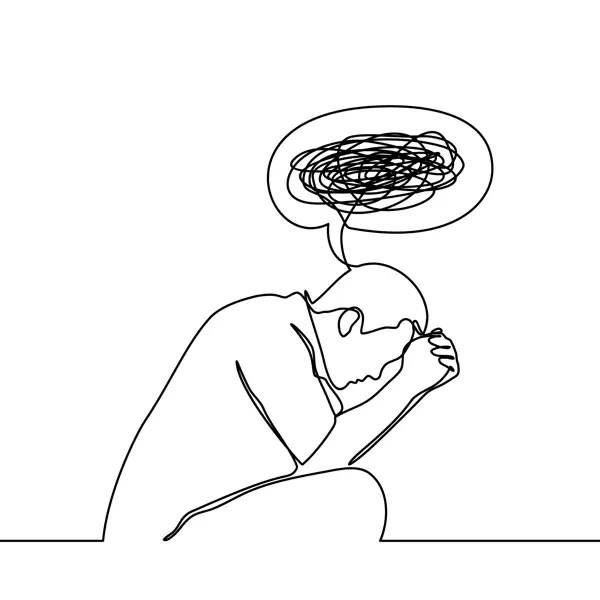Table of Contents
- Introduction
- Nature vs. Nurture
- Emotional Expression
- Communication Styles
- Societal Expectations
- Relationship Dynamics
- Mental Health
Introduction
Male psychology is a fascinating subject that delves into the complexities of the male mind and behavior. Understanding the nuances of male psychology can help foster better relationships, improve communication, and promote mental health.
Nature vs. Nurture
One of the key debates in male psychology is the role of nature versus nurture in shaping male behavior. While biological factors can influence traits such as aggression and competitiveness, societal and environmental factors also play a significant role in shaping male psychology.
Nature vs. Nurture in male psychology is a longstanding debate that explores the influence of genetics and environment on the development of male traits and behavior. While some believe that biology plays a significant role in shaping male psychology, others argue that experiences and upbringing have a greater impact.
Studies have shown that certain aspects of male psychology, such as aggression and risk-taking behavior, may be influenced by biological factors such as hormones and genetics. However, environmental factors such as upbringing, societal norms, and cultural expectations also play a crucial role in shaping male psychology.
Ultimately, the nature vs. nurture debate in male psychology highlights the complex interplay between biology and environment in shaping male behavior and personality. By understanding and examining both perspectives, we can gain a deeper insight into the multifaceted nature of male psychology.

Emotional Expression
Men are often socialized to suppress their emotions and uphold a facade of stoicism. This can lead to difficulties in expressing feelings and vulnerability, impacting their mental well-being and relationships.
Emotional Expression in Male Psychology
Men have long been socialized to suppress their emotions, leading to a stigma surrounding emotional expression in male psychology. However, it is crucial for men to understand and acknowledge their feelings in order to maintain mental health and overall well-being.
In recent years, there has been a growing recognition of the importance of emotional expression in male psychology. Research has shown that repressing emotions can lead to a range of negative consequences, including increased stress, anxiety, and even physical health problems.
By embracing emotional expression, men can develop healthier coping mechanisms and improve their relationships with others. This can involve seeking therapy, engaging in mindfulness practices, or simply talking openly with friends and loved ones about their feelings.
In conclusion, emotional expression is a vital aspect of male psychology that should not be ignored. By addressing and understanding their emotions, men can lead happier and more fulfilling lives.

Communication Styles
Male communication styles often emphasize directness and problem-solving, which can sometimes clash with more emotive and empathetic styles of communication. Understanding these differences can lead to more effective communication in relationships.
Understanding the communication styles of men in the field of psychology can provide valuable insights into how they express themselves and interact with others. Men often have unique ways of communicating, influenced by societal norms, upbringing, and personal experiences.
One common communication style seen in male psychology is directness. Men tend to be more straightforward and to the point in their conversations, preferring clear and concise communication. This can be attributed to the traditional expectations placed on men to be strong, assertive, and decisive.
Another communication style often observed in male psychology is nonverbal communication. Men may rely more on gestures, facial expressions, and body language to convey their emotions and intentions. This can sometimes make it challenging for others to accurately interpret their feelings and needs.
It is important to recognize that communication styles can vary greatly among individuals, and not all men will fit into these generalized categories. By being mindful of different communication styles and preferences, we can improve our interactions with others and foster better understanding and connection.

Societal Expectations
Societal expectations around masculinity can place pressure on men to conform to traditional gender roles, leading to feelings of inadequacy and internal conflict. Challenging these norms and embracing a more holistic view of masculinity can promote healthier psychological outcomes.
In society, there are many expectations placed on men in terms of their behavior, emotions, and roles. These societal expectations can greatly impact male psychology and how men view themselves.
Men are often expected to be strong, confident, and independent. They may feel pressure to hide their emotions and appear tough in order to fit in with societal norms. This can lead to feelings of isolation, depression, and anxiety as men may feel like they are not allowed to express vulnerability or seek help.
Additionally, societal expectations can dictate the roles that men are expected to play in relationships, careers, and family life. This can create stress and conflict for men who may not feel like they are living up to these expectations.
It is important for society to recognize and challenge these harmful expectations placed on men. By promoting emotional openness, vulnerability, and support for all individuals, we can help improve male psychology and create a more inclusive and understanding society.

Relationship Dynamics
The dynamics of male-female relationships can be influenced by ingrained gender norms and expectations. Understanding and addressing these dynamics can lead to more fulfilling and equal partnerships.
Relationship dynamics play a crucial role in understanding male psychology. Men often struggle with expressing their emotions and vulnerability due to societal norms that encourage them to be stoic and strong. This can lead to miscommunication and misunderstandings in relationships.
It is important to recognize that men may have different needs and ways of processing emotions than women. Communication is key in navigating relationship dynamics and ensuring that both partners feel heard and understood.
Understanding and supporting each other's emotional needs, being patient and empathetic, and actively working towards building a healthy and respectful relationship are essential in fostering a positive dynamic.
By recognizing and addressing the unique challenges and expectations that men face in relationships, we can create a more inclusive and understanding environment that allows for open and honest communication.

Mental Health
Mental health issues such as depression, anxiety, and substance abuse can impact men differently than women. Recognizing the unique challenges that men face in seeking help and support is crucial for promoting mental well-being.
Understanding male psychology is essential for addressing mental health concerns in men. It is important to recognize that men may face unique challenges when it comes to mental health, as societal norms often discourage them from expressing their emotions and seeking help.
Many men may feel pressure to conform to traditional notions of masculinity, which can lead to feelings of isolation and stigma surrounding mental health issues. This can prevent men from seeking the support they need, resulting in higher rates of undiagnosed and untreated mental health conditions.
It is crucial to promote open and honest conversations about mental health in men, as well as provide resources and support for those who may be struggling. By breaking down the barriers to seeking help and encouraging men to prioritize their mental well-being, we can work towards creating a healthier and more supportive environment for all individuals.

Key Takeaways
- Male psychology is a complex interplay of nature, nurture, and societal factors.
- Understanding male emotional expression and communication styles can improve relationships.
- Challenging traditional masculinity norms can promote healthier psychological outcomes for men.
- Addressing mental health issues in men requires awareness of gender-specific challenges.
FAQ
Q: What are some common misconceptions about male psychology?
A: One common misconception is that all men are emotionally detached or incapable of expressing vulnerability. In reality, men can have a wide range of emotions and should be encouraged to express them.
Q: How can understanding male psychology benefit society as a whole?
A: By fostering a greater understanding of male psychology, we can challenge harmful stereotypes and promote healthier relationships, communication, and mental well-being for all individuals.



Recent Comments